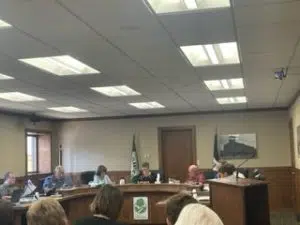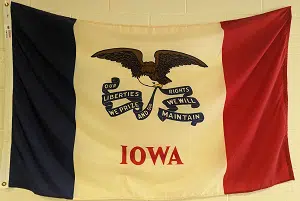
(Atlantic) At Wednesday’s City Council meeting, Atlantic City Councilperson Elaine Otte addressed several issues about the Prairie Hill housing development project on the southeast edge of the Atlantic.
Otte says the project continues to be a high priority and will try to meet the community’s housing needs.
On April 7, the Atlantic City Council approved the purchase of 41.54 acres of farmland for $830,000 from Jim Comes, now known as the Prairie Hill housing development project. The City is financing the project through a general obligation debt. The revenue sources toward the debt payments would be lot sales and farmland leases as the city sells lots for the construction of new homes and leases on the unused portions of the subdivision for farm use.
Atlantic City Councilman Gerald Brink says they want to see the project happen and are currently looking for alternatives.
In other news, *The City Council agreed to allow the Fair Association to place an electric sign on City Property at the corner of 7th and Olive Streets from July 18 through July 30.
Additionally, the City Council passed the first reading of ordinance 1020, amending the code of laws of the City of Atlantic entitled Parking regulations. This past spring, Officials from the Atlantic Food Pantry asked the City Council to allow parking along the west side of Palm Street between 6th and 7th Streets from 11:30 a.m. to 1:30 p.m. on Thursdays. The amendment would allow the cars to line up for the drive-through pantry distribution.
The City Council also consented to the issuance of Solid Waste Revenue Capital loan notes by the Cass County Environmental Control Agency, backed by the revenue charged to landfill users, not the city’s per capita fee. The Cass County Environmental Control Agency is taking out the loan for the acquisition, construction, reconstruction, repair, extension, or improvement of all or part of the Cass County Environmental Control Agency solid waste facilities system under the terms of the 28E agreement. The debt is not reflected in the City’s debt-to-value ratio. It is an external liability, not considered by the city’s creditors.












